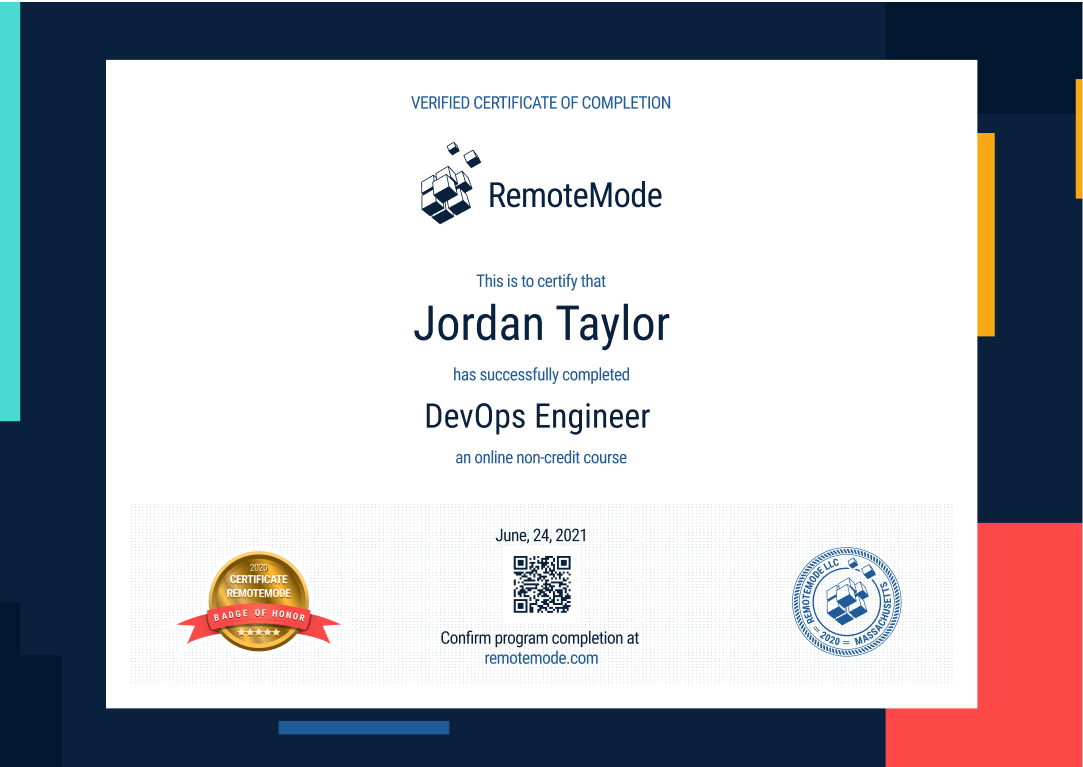Become a .Net MVC Developer
Develop software utilizing Microsoft .Net MVC framework technologies and languages. Explore front-end and back-end techs to build web apps.
- 8 month program
- 298 lessons
- 6 hr/week
- 199 hours



Mission Forecast for .Net MVC Developer
Landing Zone
All over the world hundreds of thousands of companies and start-ups use Microsoft ASP.NET systems to manage information technology. Up to 6 million programmers work with .Net technologies. According to the statistics of Linkedin.com, in the USA there are 34,000 jobs open for .NET Developers. Lots of companies write down .NET skills in the top-5 required competencies. ASP.NET Developers were added to the projected 22% job growth statistics for the next decade. It is expected to get more than 8,000 new jobs by 2029.
Mission Objective (Who’s Hiring Right Now)
.Net MVC Developer Overview
During the last fifteen years, thousands of web apps were based on .Net MVC. Working as a .NET MVC Developer your main responsibilities are:
- + 8 Month Courses
- + 6 Hours/Week Self-study
- + 298 On-demand Lessons
- + 199 Hours of training materials
- + Certificate
- + Practise on Topical Real-life Project
- Create small websites for enterprise web applications.
- Support and improve existing applications.
- Co-work with front-end developers.
- Analyze requirements and design new functionality.
- Troubleshoot and solve system problems.
- Make high-quality applications.
Prepare for Liftoff
Programming C# 6
Microsoft's programming language was launched in 2000, and it was a game-changer for the company's .NET initiative. It raised the company's image and provided developers with a slew of new prospects thanks to its four fundamental functions: object orientation, platform support, memory management, and type safety.
About the Course
Learning C# and.NET is quite beneficial in light of these considerations. This 12-part lesson covers the core fundamentals of C#, with a focus on the language's technical aspects and implementation. After that, you'll learn about the .NET framework's history and how it relates to Visual Studio. Finally, this lecture is geared towards going over the process of constructing a .NET application but still emphasizing why C# and.NET are such innovative tools for application development.
Who is this course suitable for?
C# as a programming language is object-oriented, requiring no prior programming experience. For entry-level programmers, its type-face trait remains comprehensive. This course is for newbie programmers who need to brush up on their coding skills. Those interested in pursuing a career in programming and those who will be taking related license exams for refresher training may register.
Skills to be developed and Course Prerequisites
The prerequisites for this C# training are outlined below:
- Basic programming skills
- Intermediate understanding of the OOP concept
- Entry-level mastery of C or C++ programming language
This output-heavy tutorial aims to integrate valuable skills into course takers, such as:
- Integration of date and time functions
- Implementation of C# and sufficient understanding of its nature.
- Management of program flow with conditional statements
- Proper utilization of non-primitive types such as classes, structs, arrays, and enums
- Effective debugging of C# applications
- Integration of files and directories functions
Course Content
The tutorial's segment-by-segment flow is shown below, broken into 12 segments to allow for a thorough discussion of related C# subjects.
- Part 1: Getting Started This section contains discussions on the fundamentals of C#. It puts emphasis on the history of .NET while also explaining the framework's long-term importance in programming. Other topics discussed include Visual Studio and the intermediate Microsoft language.
- Part 2: Your First Application In this session, you'll learn how to program with Visual Studio. Then, it will lead course participants through tutorials on using the platform's various capabilities.
- Part 3: Syntax and Projects The importance of C# (syntaxical) is talked about through this segment, as it is required for data manipulation and other personalization forms of coding.
- Part 4: Variables and Data Types Some methods for naming, declaring, and initializing variables are presented here. It then goes on to explain how to transfer variables to compilers properly.
- Part 5: Operators and Advanced Data Types This section expands on the previous course by delving deeper into the various data types and how to convert them. Null values are also investigated, and some recommended practices for dealing with them.
- Part 6: Strings, Data Types, and File I/O In this session, students are introduced to various classes that they can use in programming.
- Part 7: Looping and Conditions This part delves into programming conditions, as well as some of the coding factors that influence code value assessment and execution.
- Part 8: Classes and Objects Classes and objects are more sophisticated than other variables; thus, this section thoroughly explains their roles as blueprints. Here you'll find classes on how to declare and create them, as well as information on how to put behavioral functions together.
- Part 9: Types and Objects This section serves as a follow-up to introducing objects and classes, with the addition of type as a new variable. In both operational and theoretical approaches, course participants will understand their uses, key concepts, and technicalities.
- Part 10: Methods and Classes This course demonstrates how to develop sophisticated classes in codes. Methods for validating property values, like automated properties, are also talked about with a sample customer class.
- Part 11: Class Features (Advanced) This section delves into the many powerful features that C# offers. This chapter will cover the programming tools needed to develop enterprise-class code, focusing on inheritance, which is one of the most important features of object-oriented programming.
- Part 12: Sorting and Arrays This course delves into the nature of arrays, as well as how to create and grow them with data. This chapter also looks at the .NET framework's array support and how to use advanced sorting algorithms.

Mission control
- Study at the course with experienced mentors and tutors
- Take part in Virtual lab projects to upgrade your portfolio
- Monitor your results at Dashboard and compete with other students
- Use Activity Tracking Log to control your progress
- Take a step closer to your job of dream with interview prep and upgrading SV
In Collaboration with
Chart your trajectory (298 video 97 hours)
Certificate of Completion
- Certification recognized by industry companies
- Real project from virtual labs
- The program built on 100% self-study
- Course videos and subtitles
- Practical quizzes
- Mentored by high-class specialists

Grow into a .Net MVC Developer
Develop software utilizing Microsoft .Net MVC framework technologies and languages. Explore front-end and back-end techs to build web apps.
Learning program
- 8 months duration, 6 hours per week
- 298 lessons, 199 hours
- 100 % flexible timetable
Virtual lab
- Real projects
- GitHub portfolio
- Experts feedback
Career Services
- Interview prep
- SV writing
- Filling LinkedIn profile
Request More Information
View pricing and financing options